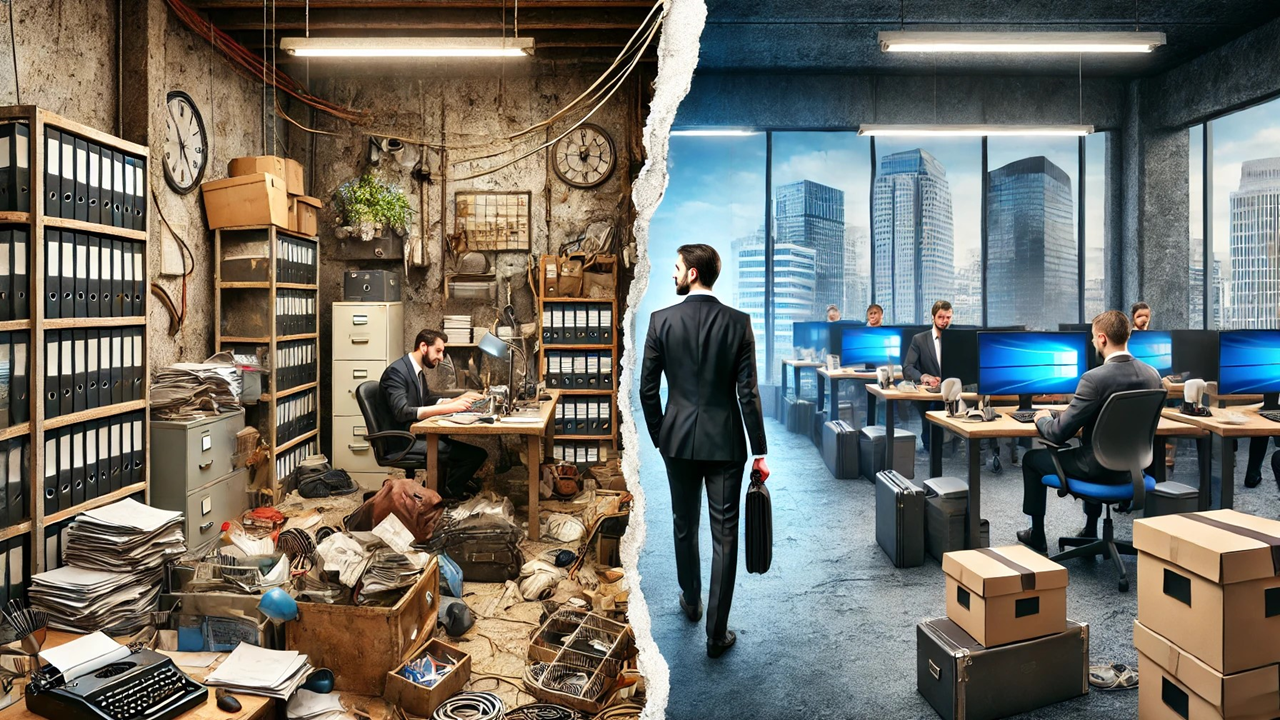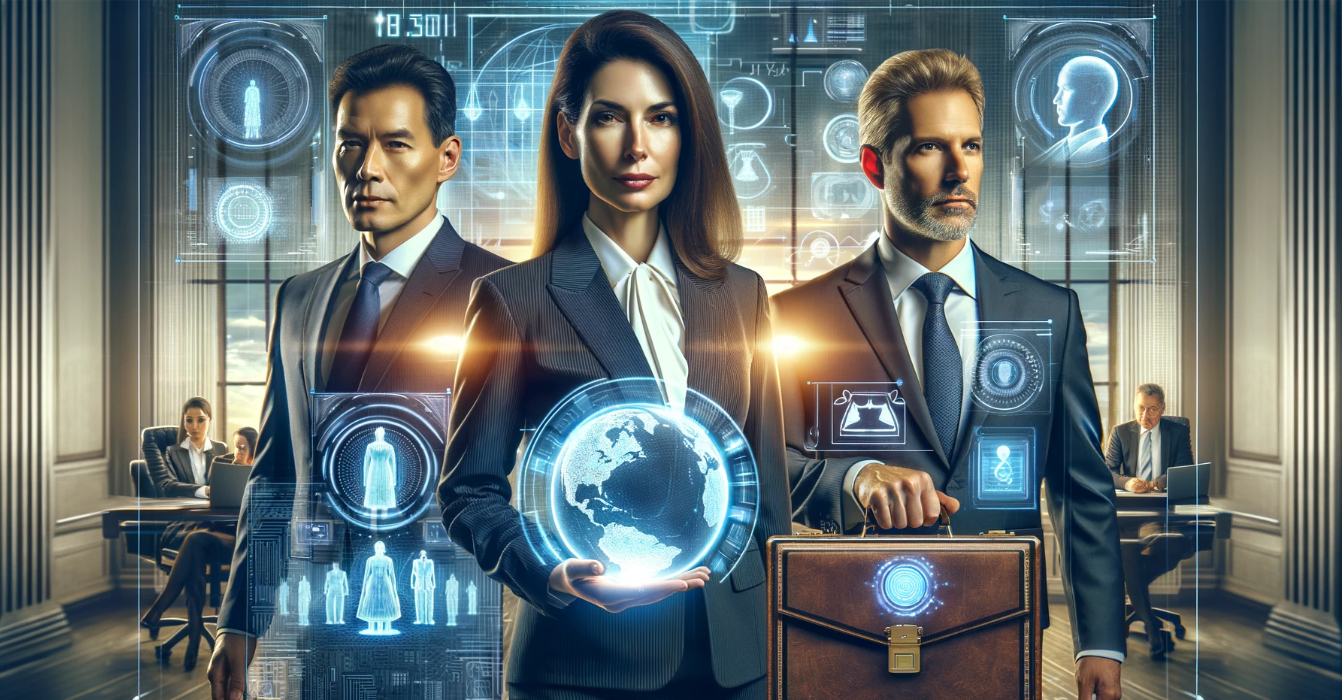The Digital Transformation Journey: Lessons For Lawyers Embracing AI — from abovethelaw.com by Olga V. Mack
The journey from the days of leather-bound law books to the digital age — and now toward an AI-driven future — offers valuable lessons for embracing change.
No One Will Miss The ‘Good Old Days’
I have yet to meet a lawyer nostalgic for the days of manually updating law reports or sifting through stacks of books for a single precedent. The convenience, speed, and breadth of digital research tools have made the practice of law more efficient and effective. As we move further into the AI era, the enhancements in predictive analytics, document automation, and legal research will make the “good old days” of even the early digital age seem quaint. The efficiencies and capabilities AI brings to the table are likely to become just as indispensable as online databases are today.
The Way We ‘Law’ Will Change For The Better
The ultimate goal of integrating AI into legal practice isn’t just to replace old methods with new ones; it’s to enhance our ability to serve justice, increase access to legal services, and improve the quality of our work. AI promises to automate mundane tasks, predict legal outcomes with greater accuracy, and unearth insights from vast data. These advancements will free us to focus more on the nuanced, human aspects of law — strategy, empathy, and ethical judgment.
AI to Help Double Legal Tech Market Over Five Years, Gartner Says — from news.bloomberglaw.com by Isabel Gottlieb (behind a paywall)
- Tech to take up a bigger share of in-house legal spend
- Generative AI boom has much longer to run
The legal tech market will expand to $50 billion by 2027, driven by the generative artificial intelligence boom, according to an analysis by market research firm Gartner Inc.
That growth, up from about $23 billion in 2022, will be driven by continued law firm spending on AI legal tech, as well as in-house departments allocating more of their overall budgets to technology, said Chris Audet, chief of research in Gartner’s legal, risk and compliance leaders practice. The market size prediction, released publicly on Thursday, comes from a late-2023 analysis for Gartner clients, and the 2022 market size comes from …
Legal Tech Market To See Huge Lift Off Thanks to GenAI — from digit.fyi by Elizabeth Greenberg
The global legal technology market has grown significantly in recent years and generative AI (GenAI) will accelerate this growth, meaning the market will reach $50 billion in value by 2027, according to Gartner.
“GenAI has huge potential for bringing more automation to the legal space,” said Chris Audet, chief of research in the Gartner for legal, risk & compliance leaders practice.
“Rapid GenAI developments, and the widespread availability of consumer tools such as OpenAI’s ChatGPT and Google’s Bard, will quickly increase the number of established legal technology use cases, in turn creating growing market conditions for an increasing number of legal-focused tools.”
“New technologies can fundamentally change the way legal organizations do business, and GenAI has enormous potential to do this,” an analyst at Gartner said.
Revolutionizing Legal Tech in 48 Hours — from law.stanford.edu by Monica Schreiber
At CodeX Hackathon, SLS Students Help Create Award-Winning AI Tools to Help Veterans and Streamline M&A
Disabled veterans seeking to file claims with the Veterans Administration are faced with multiple hurdles and reams of paperwork. Many vets resort to paying third-party companies thousands of dollars to help them with the process.
What if there were a way to streamline the claims process—to condense burdensome information gathering and data inputting into a linear, simplified set of tasks guided by a chatbot? How long would it take to roll out a tool that could accomplish that?
The answer: about 48 hours—at least for an interdisciplinary team of students from Stanford University’s schools of Law, Business, and Computer Science collaborating feverishly during Codex’s Large Language Model (LLM) Hackathon held recently on campus.
What If Your Law Firm Had A Blank Page For Legal Tech? — from artificiallawyer.com
f law firms had a blank page for legal technology and innovation, what would they do?
While organisations across all sectors are getting to grips with the opportunities and risks posed by genAI, forward-thinking law firm leaders are considering what it means for their businesses – today, tomorrow, and the day after tomorrow.
But some firms remain constrained by yesterday, due to legacy processes, ways of working and mindsets. To create the conditions for change, firms need to adopt a ‘blank page’ approach and review all areas of their businesses by asking: if we were starting afresh, how would we design the organisation to future-proof it to achieve transformative growth with genAI at the core?
From DSC:
This sentence reminds me of the power of culture:
But some firms remain constrained by yesterday, due to legacy processes, ways of working and mindsets.
Fresh Voices on Legal Tech with Sarah Glassmeyer — from legaltalknetwork.com by Dennis Kennedy, Tom Mighell, and Sarah Glassmeyer
What if, instead of tech competence being this scary, overwhelming thing, we showed lawyers how to engage with technology in a more lighthearted, even playful, way? The reality is—tech competency doesn’t have an endpoint, but the process of continuous learning shouldn’t be dull and confusing. Sarah Glassmeyer joins Dennis and Tom to talk about her perspectives on technology education for attorneys, the latest trends in the legal tech world and new AI developments, and growing your knowledge of technology by building on small skills, one at a time.
.

How Legal Technology Can Add Value to an M&A Practice — from lexology.com
Following is a primer on some of the A.I.-driven legal technologies, from contract review and automated due-diligence solutions to deal collaboration and closing-management tools, that can drive productivity and efficiency during the four phases of an M&A transaction, as well as enhance market insight and client service.











.jpg)

